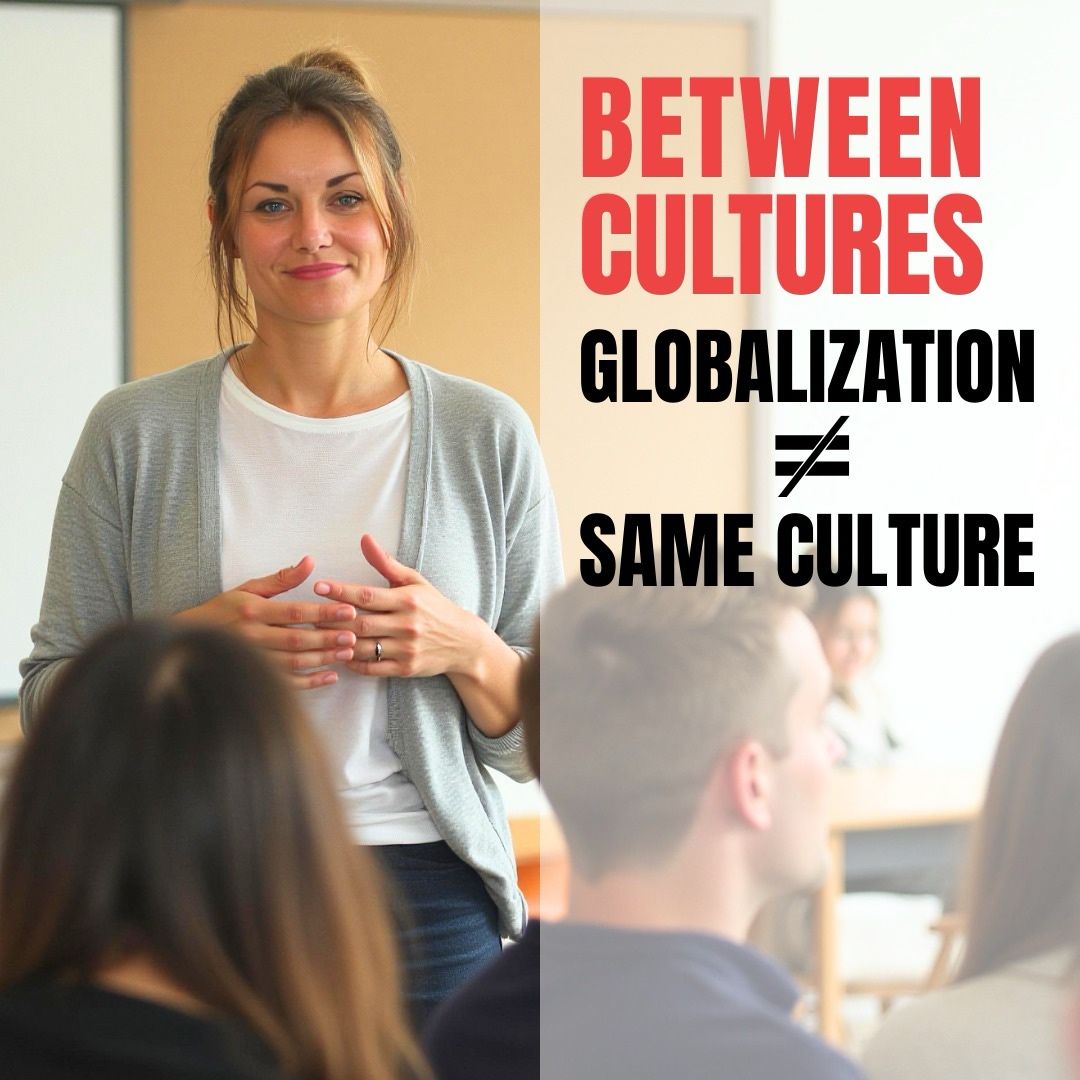Are we all the same?
We are all human, we eat, we sleep, we laugh, we study or work, we take care of the people we love.
But how we do these things varies from culture to culture.
And yet, in my trainings I often hear:
“With globalization, aren’t we all becoming the same?”
On the surface, it can look that way:
👉🏼Familiar fast-food chains everywhere.
👉🏼Office buildings that look alike.
👉🏼Turn on the radio in Berlin, Boston or Baku, you’ll hear Beyoncé or Justin Bieber.
👉🏼teenagers’ fashion looks similar across continents.
💡But culture is like an iceberg.
The visible part may look alike,what lies beneath does not shift so easily.
Values, expectations and beliefs change more slowly and are less affected by surface influences.
Of course, culture is changing.
But it moves in its own rhythm.
Take Germany as an example:
Germany is evolving, shaped by technology, access to information, and new expectations, while still remaining distinctly German.
Hierarchy is becoming blurred. Today, much more happens at eye level, something that would have been unthinkable just a few generations ago.
I can now send a sick note by WhatsApp to my boss.
But it still has to be on time and the bureaucratic procedure that follows remains unchanged.
That’s Germany: new rules layered on top of old structures.
👉 Globalization isn’t destroying culture. It is rewriting the rules within it. That’s what progress has always done. Always.
So no, we’re not all becoming the same. The world is becoming more complex.
Cultural differences remain and in mixed global teams they may even become more visible.
Globalization ≠ Same Culture
